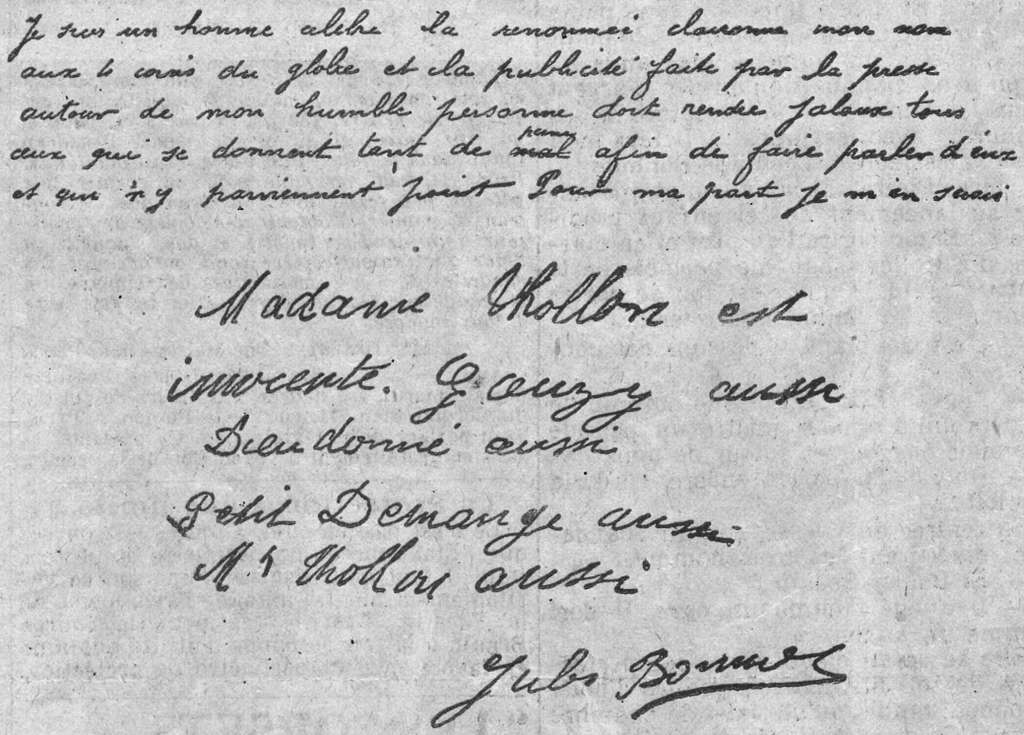Estate planning might sound like something only billionaires with yachts and scandalous secrets worry about, but here’s the tea: even if your biggest asset is a beat-up Camry and a killer vinyl collection, you still need a plan. Because when you don’t, it’s not just awkward—it’s expensive. We’re talking frozen accounts, surprise taxes, sibling feuds, and your childhood home being sold off to cover debts. It’s not cute, and it’s definitely not how you want to be remembered. Whether you’re 32 or 82, ignoring your estate is like ghosting your family with a trail of unpaid bills.
1. Thinking Estate Planning Is Just For Rich People

Biggest myth in the game: “I don’t have enough to need an estate plan.” Wrong. Estate planning isn’t about how much you have—it’s about who gets it, when and how. Even a modest savings account or a used car can become a major legal headache without documentation.
It’s not just about money, either. It’s about guardianship, health directives, and avoiding court battles. Skipping the process just means someone else—usually the state—gets to make decisions for you. And let’s be real, the government probably isn’t great at deciding who gets your dog or your vintage Star Wars collection. Planning is peace of mind, no matter your net worth. You don’t have to be rich to want your stuff to go to the right people.
2. Not Having A Will At All

Let’s start with the obvious mistake: not having anyestate plan. No will, no trust, just vibes. You may think you’re too young, too broke, or too boring for a will, but even if your biggest asset is a beat-up Subaru and a vintage vinyl collection, you still need one. Without a will, your assets go into probate and that means the state decides who gets what.
According to AARP, more than half of American adults don’t have a will—meaning their families could be left in total limbo. Even worse, probate can take months (or years) and rack up legal fees that drain whatever little is left behind. It’s like ghosting your family one final time, but with paperwork. A basic will can save a lot of grief—and money. You don’t need a castle to need a castle plan. Even if it’s just to say “Give my record collection to my bestie,” make it official.
3. Forgetting To Update Beneficiaries

Imagine leaving your life insurance to your ex from three relationships ago. Yikes. Outdated beneficiaries are one of the most common and costlyestate planning blunders—and they override your will. That’s right: even if your shiny new will says your assets go to your current spouse or your kids, your life insurance or 401(k) will go to whoever’s listed on the form.
As the experts at Rutkowski Law Firm point out, millions of dollars end up in the wrong hands because people forget to check and update these forms after major life changes. Think marriage, divorce, birth, death, or just deciding you don’t vibe with your cousin anymore. Beneficiary designations are legally binding, and they’re usually the first thing financial institutions look at. So set a calendar reminder: check those names annually. It’s 10 minutes that could save your family a lifetime of courtroom drama.
4. Leaving Everything To The “Responsible Kid”

We love the “golden child,” but relying on one adult kid to “distribute everything fairly” is a trust fall off a financial cliff. No matter how much you believe in sibling harmony, money changes things. Leaving everything to one child with the verbal understanding they’ll divide it? That’s not a plan—it’s a recipe for resentment.
The Wealth Strategies Journal covered how these “handshake agreements” often lead to years of family tension—or lawsuits. Even the most well-intentioned kid can get overwhelmed, guilt-tripped, or decide their interpretation of “fair” is different from yours. Plus, taxes and legal obligations fall on their name, not anyone else’s. The solution? Be specific. Use your will or trust to clearly spell out who gets what. Fair isn’t always equal, but documented is always better than “trust me, Mom said…”
5. Not Planning For Disability Or Incapacity

Estate planning isn’t just about what happens after you die—it’s also about what happens if you’re alive but can’t make decisions. Enter: durable powers of attorney and healthcare directives. Without them, your family could end up in court just trying to access your bank account to pay your rent.
Investopedia emphasizes that planning for incapacity is essential, yet it’s often overlooked until it’s too late. If you’re suddenly incapacitated and haven’t legally named someone to act on your behalf, you’re leaving your loved ones powerless—and possibly broke. These documents aren’t just legal fluff; they’re the keys to keeping your life running when you can’t. Think of them like insurance for your brain. And pro tip: choose someone who’s good with money and stress. Your emotionally overwhelmed cousin probably isn’t the best pick to navigate your hospital bills.
6. Putting Assets In Joint Names Without Understanding The Risks

Putting your bank account in your adult child’s name “just in case” might sound like an easy hack—but it’s really a legal landmine. Joint ownership means that person has full access now, not just later. That includes the power to drain the account, intentionally or accidentally. And if they get divorced, sued, or file for bankruptcy? Your money is fair game.
As Kiplinger explains, joint ownership often leads to unintended consequences and family disputes. There are better ways to give access—like a power of attorney or transfer-on-death designation—that don’t come with legal exposure. You’re trying to make things easier, not risk losing your assets to your kid’s ex. So don’t let convenience now lead to chaos later. A five-minute shortcut can turn into a five-year court battle. Choose your structure wisely, and when in doubt, talk to a pro.
7. Ignoring Digital Assets

Let’s be honest: most of us have more passwords than pants we actually wear. But when it comes to estate planning, people constantly forget to include their digital life—email accounts, social media, cloud storage, crypto, even your DoorDash credits. If you die without giving someone access (and legal permission), all those assets could be locked in digital limbo forever. Your family might not even know what accounts exist, let alone how to retrieve them.
And good luck calling customer service from the afterlife. Without a plan, your TikTok legacy could outlive your bank account. Even worse, some companies legally block access to digital content—even for next of kin—unless you’ve planned ahead. Create a digital asset inventory, include it in your estate documents, and give access to someone you trust. And yes, that includes your OnlyFans login, we don’t judge. Bottom line: your data deserves an afterlife too.
8. Relying On Verbal Promises Instead Of Written Instructions

“I told my nephew he’d get the Camaro.” That’s nice, but if it’s not in writing, it might as well have been a dream. Verbal promises hold zero legal weight in estate law. When money or sentimental items are involved, people suddenly develop amnesia—or claim you said something totally different.
A casual conversation at Thanksgiving doesn’t count in probate court. Want to avoid chaos? Get it in writing. Whether it’s jewelry, real estate, or Grandma’s haunted rocking chair, spell it out. If you don’t, expect some drama—and maybe a cousin turf war. You can’t micromanage from beyond, but your paperwork absolutely can.
9. Naming The Wrong Executor

Choosing an executor isn’t about picking your favorite person—it’s about picking the most capableperson. Your oldest child might be “the responsible one,” but if they’re bad with money or allergic to confrontation, they’re probably not the best choice. Executors have to handle paperwork, deadlines, taxes, and cranky relatives. It’s not a ceremonial role—it’s a second job.
Picking the wrong person can delay your estate, cost your family money, or cause infighting. Choose someone organized, level-headed, and ideally not a drama magnet. Also, ask them before you list them. Surprising someone with the role after you’re gone is not the vibe. It’s not just about trust—it’s about skill.
10. Forgetting To Fund Your Living Trust

Creating a living trust is a power move, but it only works if you actually put stuff into it. So many people go through the legal process to set one up and then… forget to transfer their assets. That means their home, bank accounts, or investments aren’t protected and still go through probate. Womp womp.
It’s like buying a safe and leaving your valuables on the kitchen table. Once you create the trust, you must retitle assets into the trust’s name. That includes real estate, brokerage accounts, and sometimes even your car. If you don’t, you’re basically paying for a fancy legal binder with no impact. Talk about wasted potential. Set it up, then use it.
11. Overlooking Taxes Even After Death

Death might stop the clock, but it doesn’t stop the taxman. If your estate crosses certain thresholds—or includes complex assets—there could be serious tax consequences. Some people assume their heirs will inherit everything cleanly, but nope: estate taxes, income taxes, and capital gains taxes are all still on the table.
If you don’t plan for that, your beneficiaries could be hit with a massive bill. That family lake house? Might have to be sold just to cover taxes. You can avoid a lot of this with smart strategies—like gifting assets during life or creating charitable trusts. But only if you plan. Taxes don’t end when you do. So don’t let Uncle Sam be your estate’s biggest beneficiary.
12. Not Coordinating Your Will With Other Legal Documents

Your will might say one thing, but if your beneficiary forms, trusts, and account ownerships say another, guess what wins? Not the will. A lot of people make the mistake of creating a will and thinking that’s the final word—but other documents supersede it. So if your will says “split evenly between the kids,” but your IRA still lists your ex, that money’s going straight to the ex.
Coordinating everything takes time, but it’s essential to avoid contradiction—and confusion. Think of your estate plan like a band. Your will is the lead singer, but if the rest of the instruments aren’t in sync, the whole thing’s a mess. Review all your documents together at least once a year. And whenever your life changes, your paperwork should too. Consistency is what keeps your plan bulletproof.
13. Keeping Secrets From the People Involved

Estate plans shouldn’t be a surprise party. If no one knows where your documents are, who your attorney is, or what your wishes were, you’re leaving your loved ones to play detective while grieving. Worse, when people feel blindsided by your choices, it can lead to resentment, legal challenges, or both.
You don’t need to spill every detail, but you do need to give your inner circle the basics. Let your executor know they’re in charge. Tell your health care proxy what you want done. And for the love of stress reduction, store your documents in a place they can actually find. No one should have to rummage through your sock drawer to uncover your final wishes. Transparency is kindness.
14. Procrastinating Until It’s Too Late

This one’s the most relatable—and the most dangerous. It’s easy to put estate planning off because life is busy and thinking about death is a total buzzkill. But emergencies don’t RSVP. If something happens before you’ve made a plan, your family’s left dealing with legal chaos on top of emotional grief.
>And if you’re incapacitated, you won’t even get to explain what you wanted. The “I’ll do it next month” mindset has tanked entire inheritances. The best time to plan is yesterday. The second-best time? Today. Set aside one weekend, call an attorney or use a trusted platform, and just start. You don’t need it all perfect—just in progress.
15. Not Reviewing Your Plan Regularly

Life changes. So should your estate plan. Marriages, divorces, kids, new businesses, a Powerball win (hey, we can dream)—they all impact your legacy. However, if you made your will 10 years ago and haven’t reviewed it since, you’re essentially operating under outdated instructions.
Even subtle changes, like a move to another state, can affect how your documents are interpreted. And don’t even get started on changing tax laws. Review your plan every few years—or after any major life event. Think of it like a tune-up for your finances. Your future self (and your family) will thank you. Estate planning isn’t a one-and-done—it’s a living document, just like you.
This article is for informational purposes only and should not be construed as financial advice. Consult a financial professional before making investment or other financial decisions. The author and publisher make no warranties of any kind.








